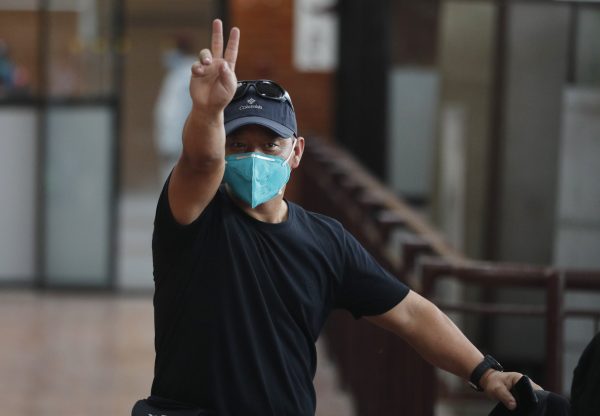
The Taliban’s capture of power in Afghanistan has triggered a mass exodus of Afghans and people of other nationalities from the country. Among them are thousands of Nepali nationals who have been living and working in Afghanistan. They are waiting to be evacuated.
However, the Nepali government does not have data on the number of Nepali workers in Afghanistan. The number could be anywhere between 2,000 and 15,000.
This lack of data is hampering evacuation efforts. It could leave hundreds of illegal workers in Afghanistan at risk.
Nepal is depending on the United States and other western nations as well as India to help in the evacuation.
On August 15, the Nepali government called for the evacuation of 1,500 of its citizens who were working as security staff with embassies and international aid groups in Afghanistan. It has set up a panel to determine the exact number of Nepalis working in the country.
The Americans were the first to help Nepal. They evacuated 118 Nepali Gurkhas working at the U.S. Embassy in Kabul. Nine Indians were also part of the rescue. According to Sewa Lamsal, spokesperson of Nepal’s Ministry of Foreign Affairs (MoFA), the rescue was possible because of co-ordination by the U.S. Air Force. Canada has also evacuated 100 Nepali Gurkhas employed at its embassy in Kabul.
By 5 p.m. on Thursday around 300 Nepalis had filled in online forms expressing the desire to leave Afghanistan, and the number is expected to increase in the coming days. The foreign ministry has requested various recruitment agencies to provide the exact numbers of Nepalis they sent to Afghanistan for work. It has also sent a formal request to various foreign embassies to help Nepalis return home.
According to the foreign ministry, 296 Nepali citizens have been evacuated from Afghanistan so far. Those evacuated are being tested for COVID-19 and only then are they moved to the holding center managed by the Nepal government in Samakhushi, Kathmandu.
In addition to a lack of clarity on the numbers stuck in Afghanistan, the absence of an embassy in Afghanistan is hampering Nepal’s evacuation efforts. The Nepali government has had to coordinate rescue missions with its embassy in New Delhi.
Rajan Bhattarai, a central committee member of the Communist Party of Nepal-UML, has urged the Nepal government to evacuate undocumented Nepali workers in Afghanistan immediately. “The government will make arrangements for their evacuation also,” Lamsal said.
People are calling on the Sher Bahadur Deuba government to speed up efforts to evacuate stranded Nepali citizens. Thy are appreciating the support extended to the Nepali nationals by foreign powers, especially the U.S.
The Nepali government’s dependence on other countries to rescue its citizens independently is a stark reminder that the country’s capacities overseas are limited. Nepali citizens cannot expect smooth evacuation amid a global crisis.
It will not be easy for the Nepali government to establish relations with the Taliban.
Taliban attacks have taken the lives of numerous Nepali nationals. On June 20, 2016, 12 Nepali security guards stationed at the Canadian embassy in Kabul were killed in Taliban suicide attack. The incident forced the Nepali government to place a four-month temporary ban on Nepalese going to Afghanistan for employment.
Moreover, Nepal’s military role in supporting the U.S. and NATO allies has also put the country at odds with the Taliban.
Nepal is the current chair of the South Asian Association for Regional Co-operation (SAARC). And as the the regional grouping’s chair, the Nepal government must establish direct communication with the Taliban for the repatriation of remaining Nepalis and contain any tensions between the two governments.
“Nepal’s Government must proactively establish contact with the Taliban regime to ensure the safety of its citizens in Afghanistan,” senior journalist Kanak Mani Dixit tweeted, while calling on Nepal’s civil society to “reach out & offer safe haven to Afghan journalists, gender & human rights activists, as and when required.”
“As current chair of SAARC, Kathmandu must seek to engage Kabul while remaining outside the sphere of Indian, Chinese, Pakistani, Saudi & Western interests. The ‘visa on arrival’ facility available to all other South Asian countries must be made available to Afghan citizens.” Dixit said.
Nepali officials have decided to maintain a neutral position regarding the new Afghanistan regime for now. And perhaps that will pave the way for Nepal-Afghanistan relations in the coming days as the Himalayan nation focuses on repatriating its citizens.

0 Comments